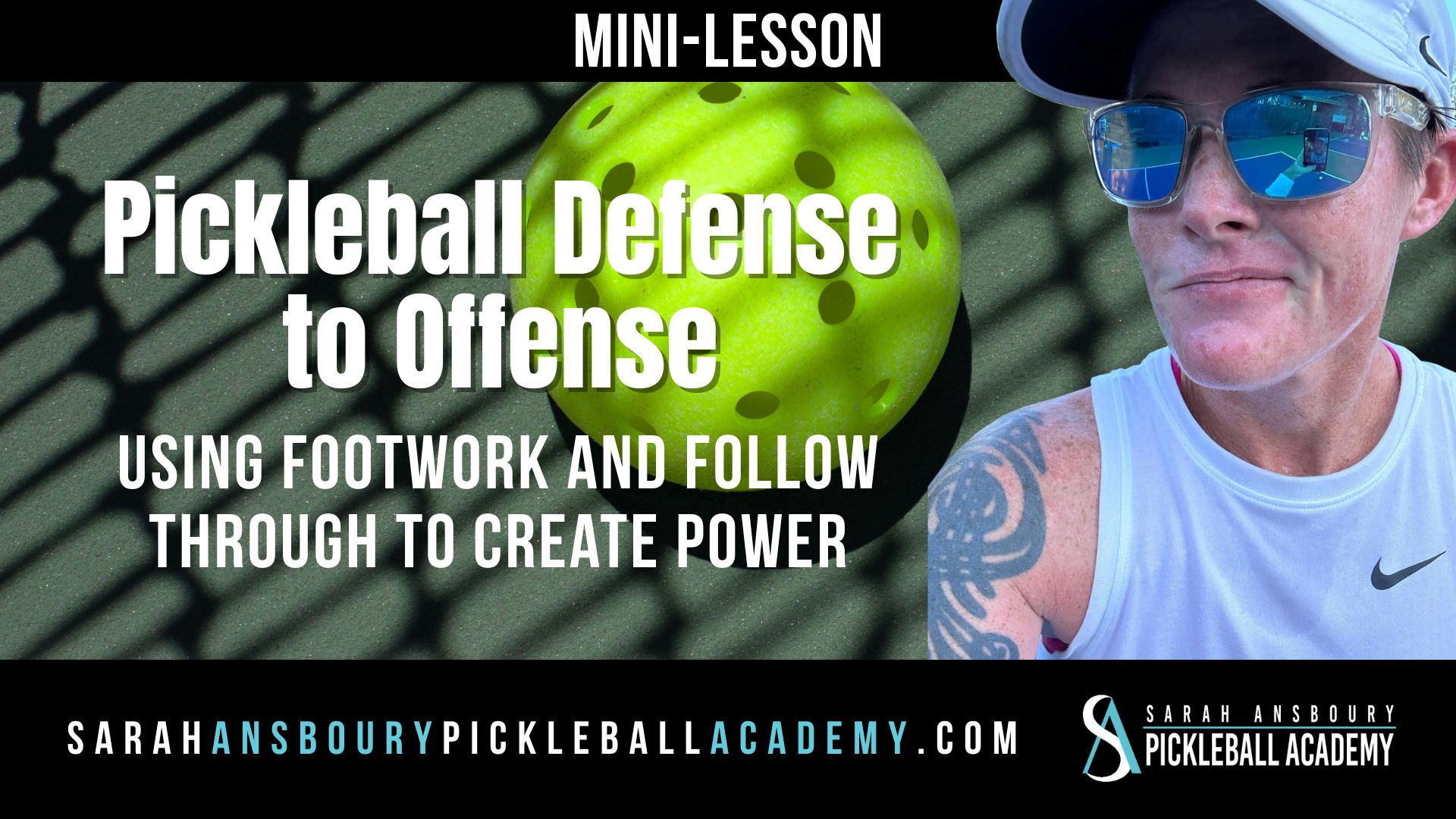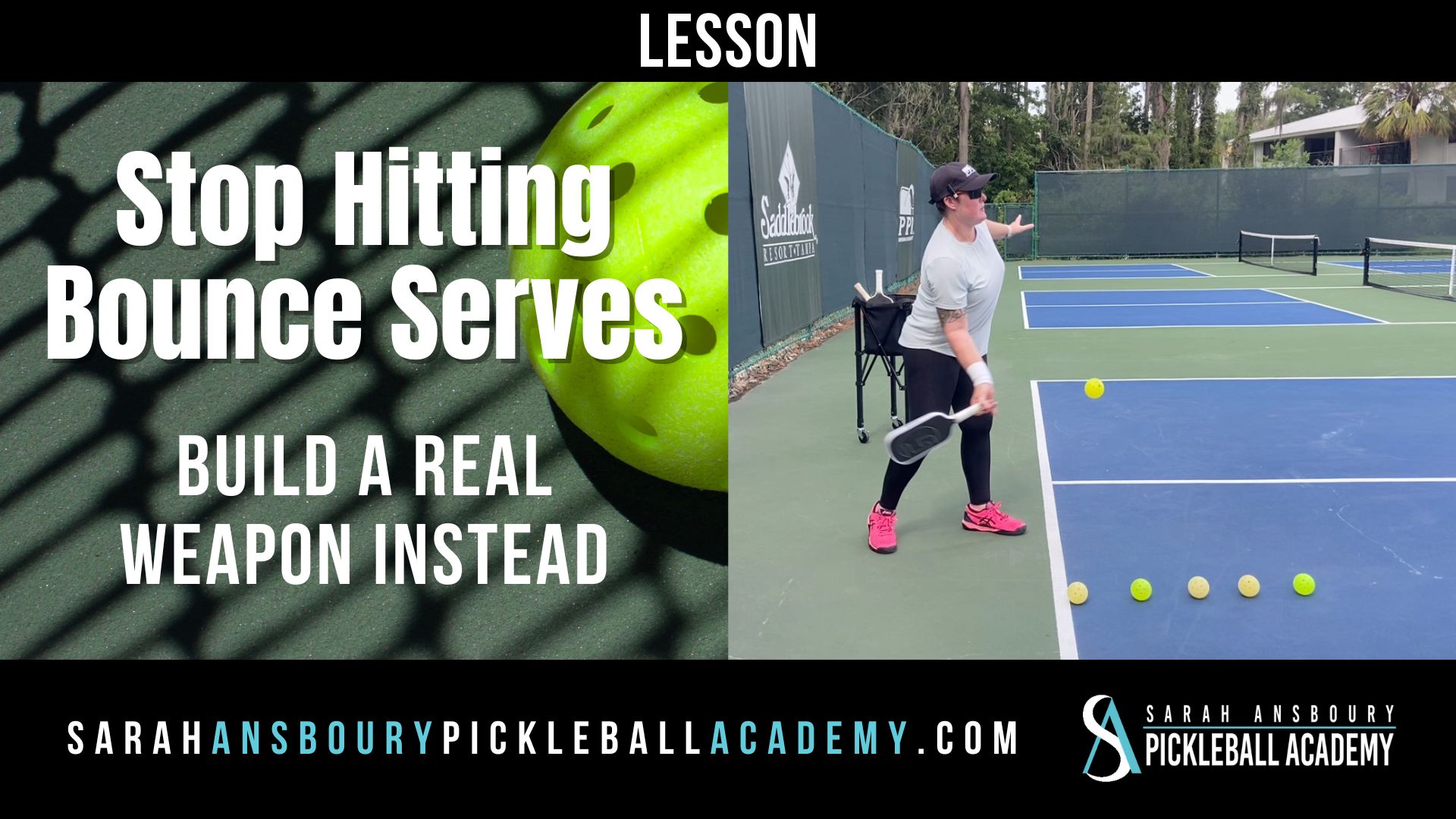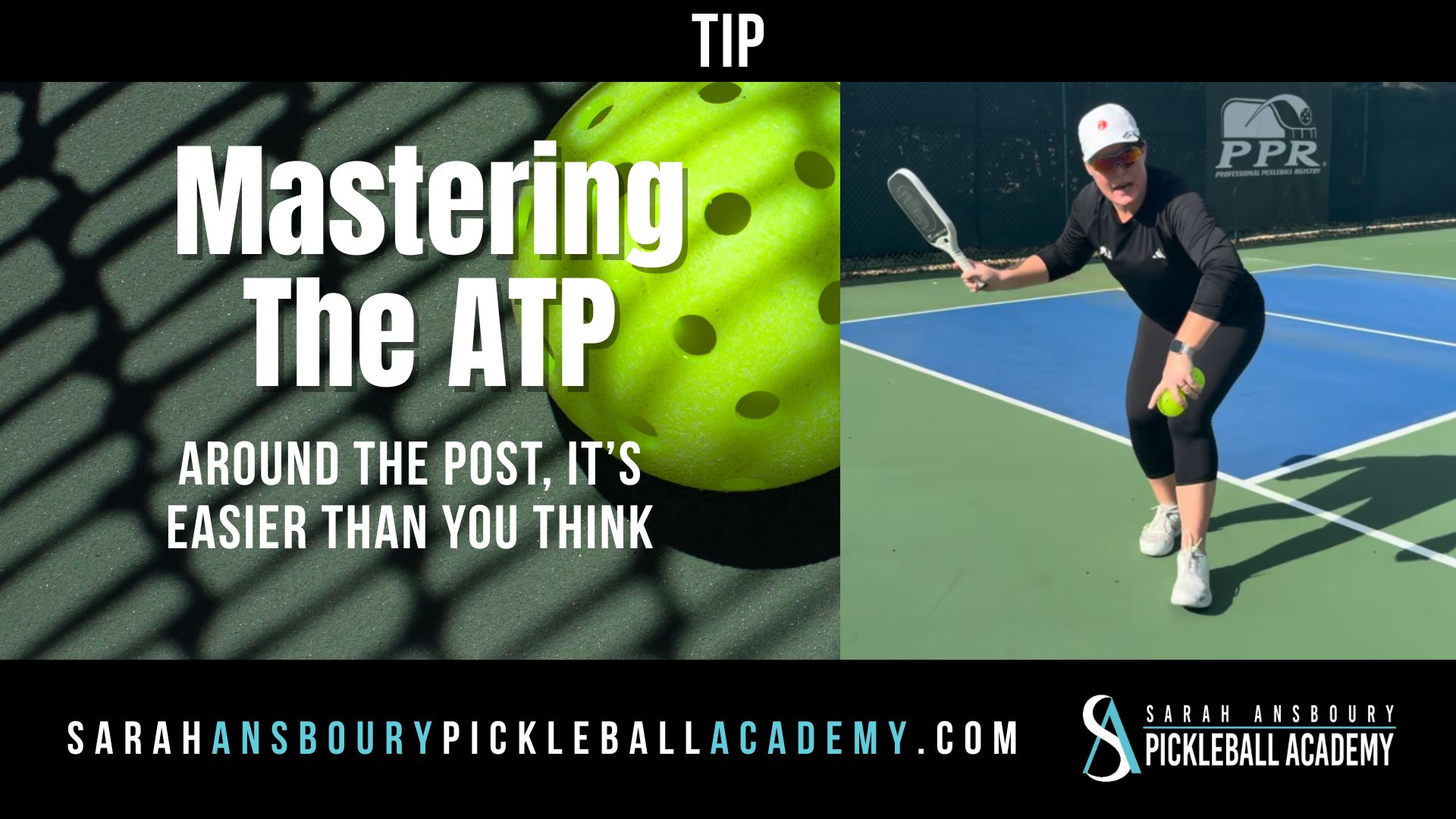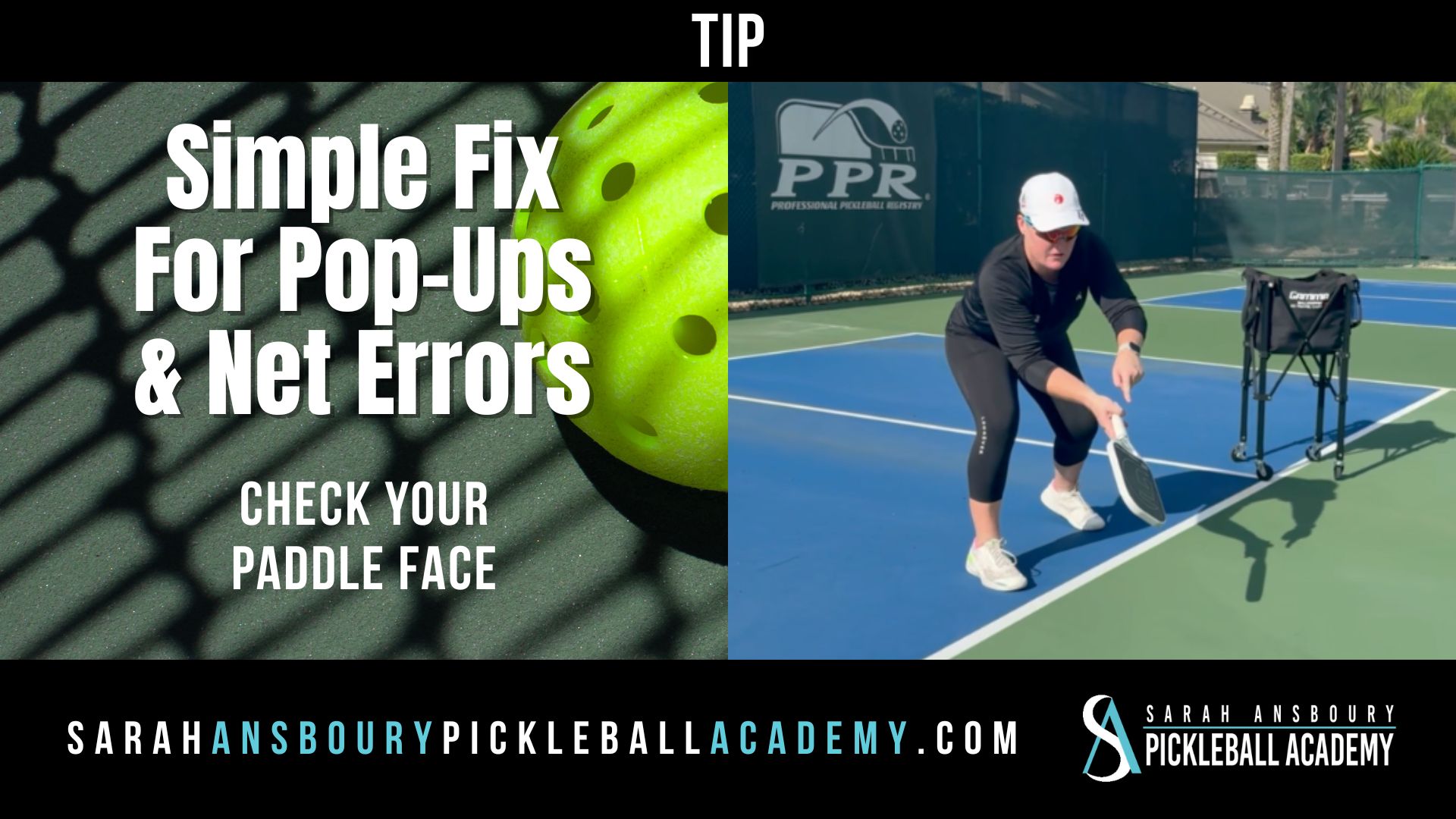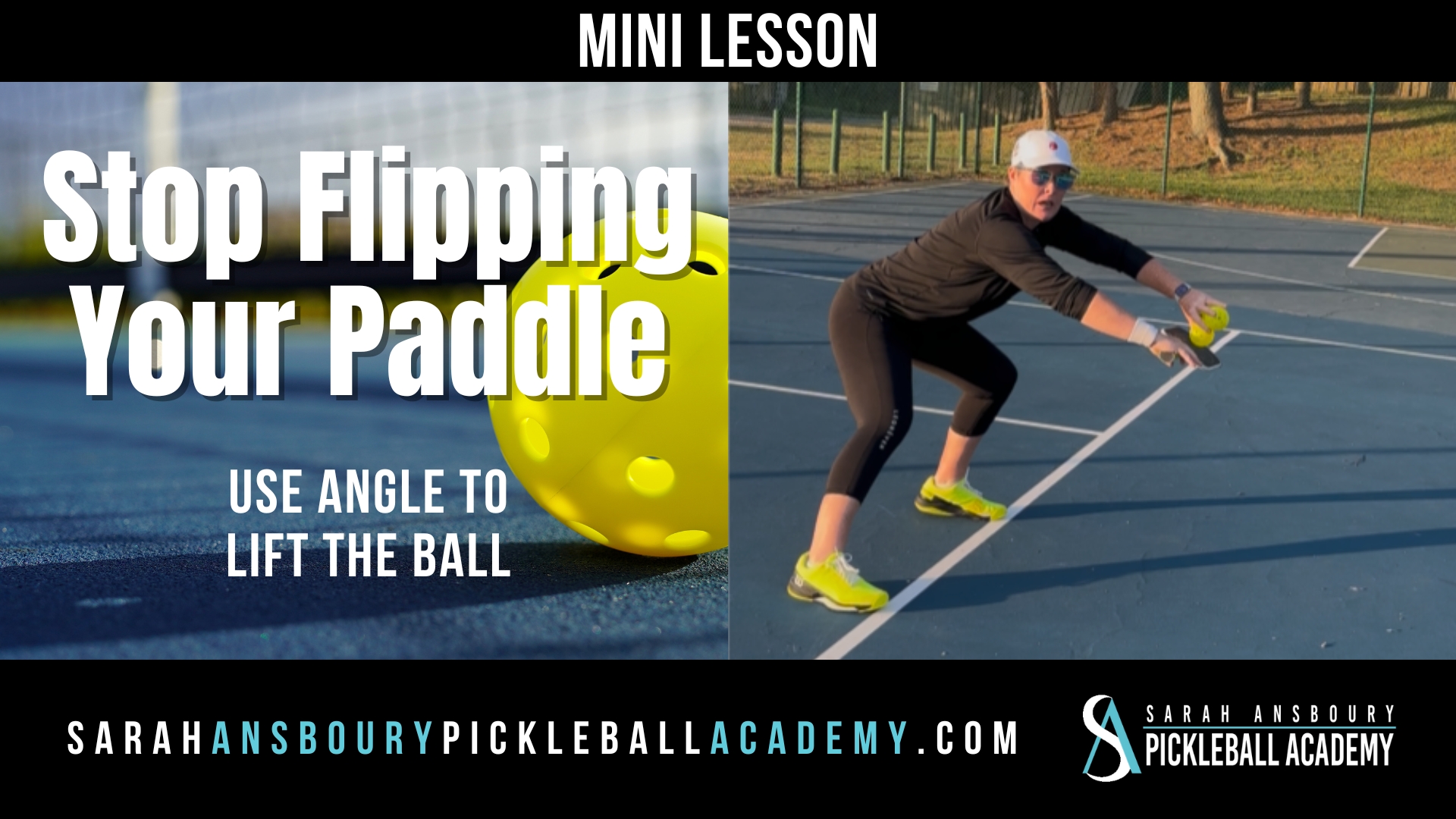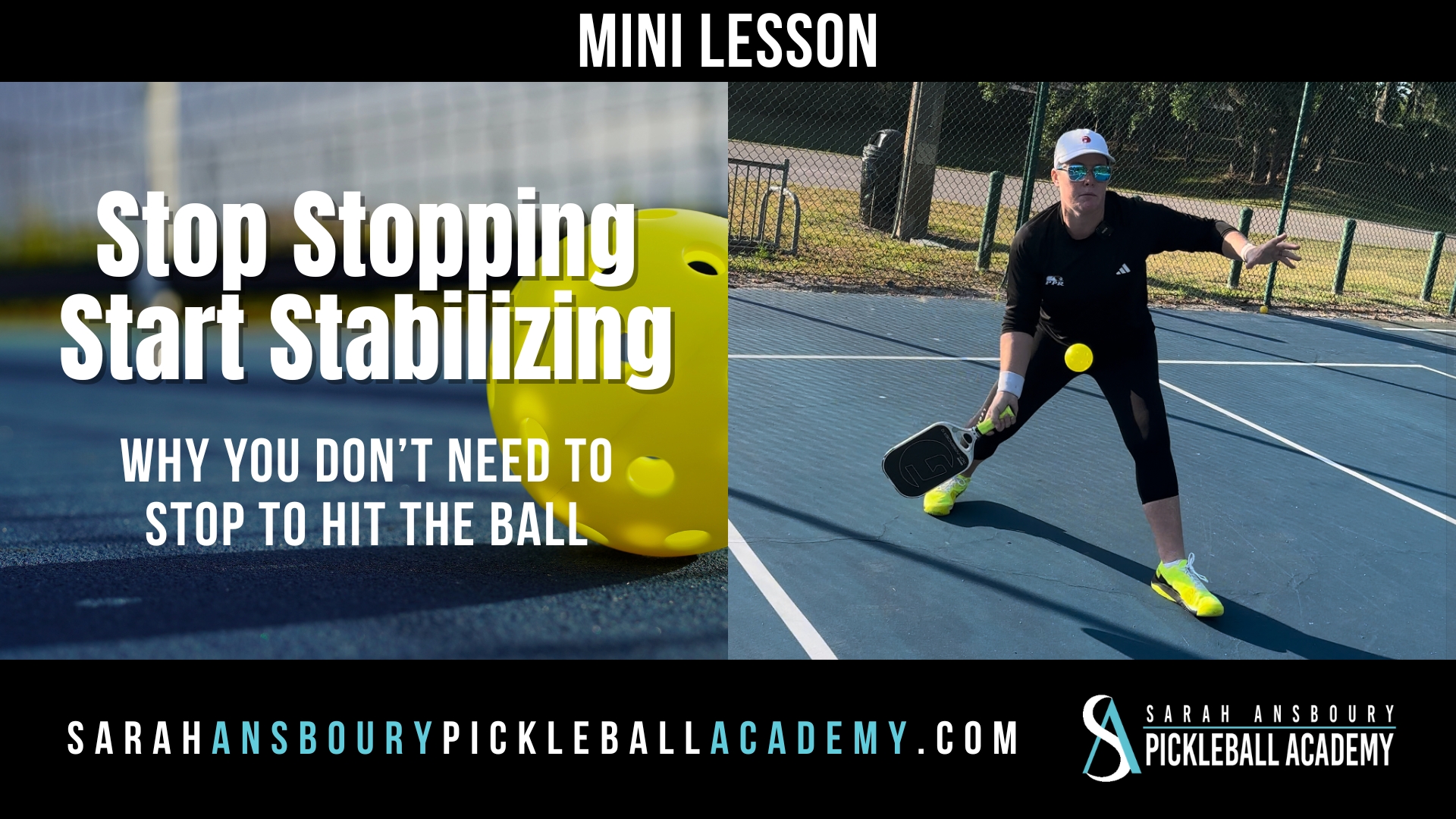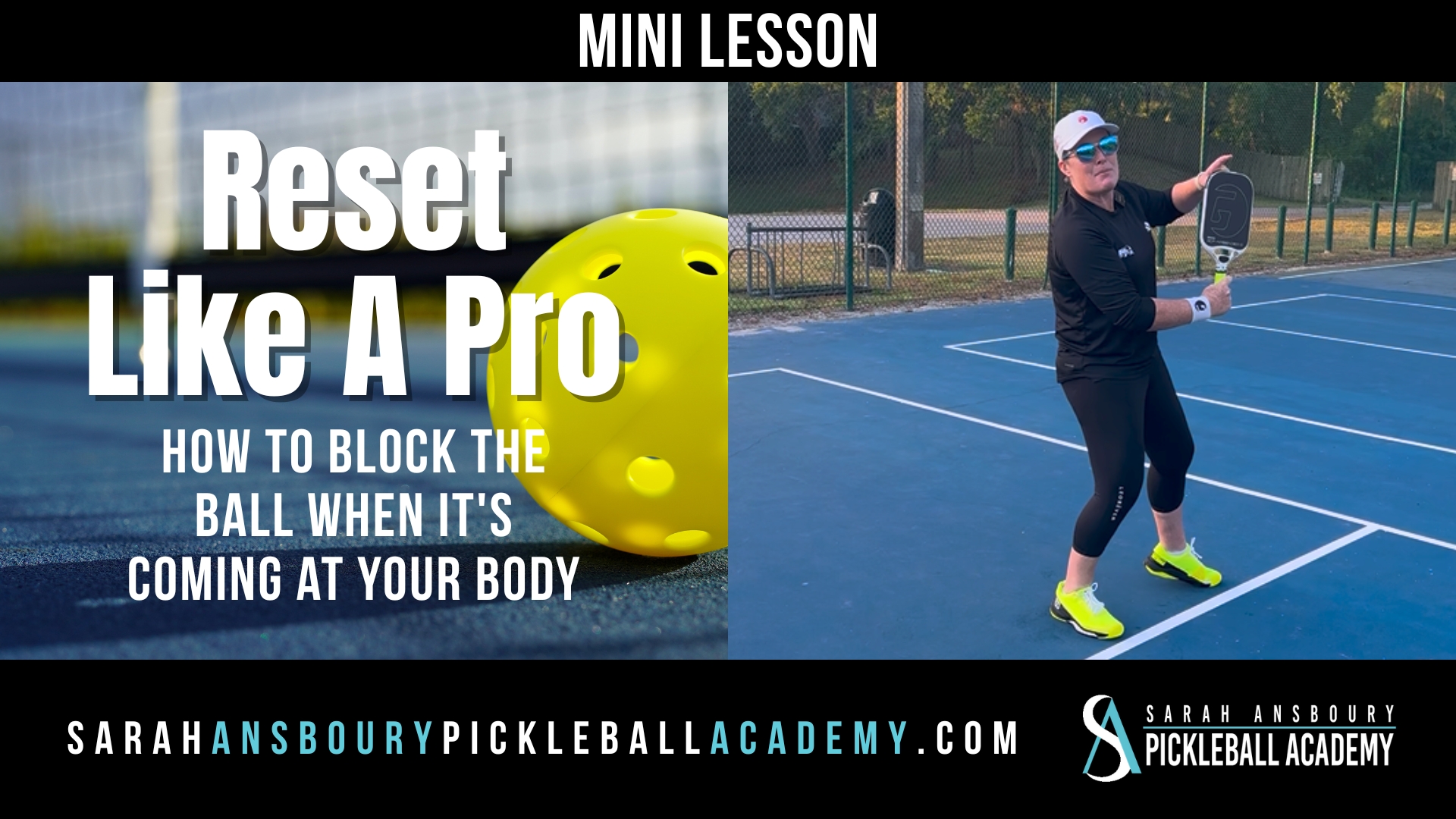Dink, Dink, Dink
It is great to be able to dink well. You should practice dinking regularly. But often I find players so focused on executing a perfect dink that they fail to recognize that a different shot would win the point for their team. It is important to develop this court sense as you play. But I realize it may seem difficult when you are focusing on the ball in front of you.
That is why I think it is often helpful to watch others play. When you watch from the sidelines, try to focus on one of the keys that I mention below. See if you can identify it as you watch people play. Once you can, try to identify the key as you play. Being able to identify these keys and knowing when to stop dinking will improve your game.
The opponent is Off Balance or Off the Court
One of the things that just drives me crazy, is when I watch a game and a player has driven their opponent off-balance or off  the court and they don’t take advantage of that fact. I have even seen the player dink to the off-balance player’s partner…giving them time to recover. When you have done the hard work to cause your opponent to lose balance or fall of the court, take advantage of the situation…stop dinking and attack.
the court and they don’t take advantage of that fact. I have even seen the player dink to the off-balance player’s partner…giving them time to recover. When you have done the hard work to cause your opponent to lose balance or fall of the court, take advantage of the situation…stop dinking and attack.
If you aren’t in a position to hit the ball harder consider hitting the ball behind them. Our first reflex when we have gone wide is to scurry back into position. As they move to the center, hit the ball to the sideline. As their weight will be moving in the opposite direction, they will unlikely be able to recover.
Dip their Head
When I am dinking, I am looking at my opponent and their paddle. I really try to be conscious of every part of them…their feet, their face, etc. If they dip their head, I know this is a great time to lob them. First, they are likely a little off-balance. Second, it takes more time to respond given they have to lift the 12 lb bowling ball we call a head first. Third, they have further to go…just to stand up and turn around. If your opponent drops their head, stop dinking and throw up a lob.
Weight in Their Heels
Winning the Point
Dinking is an important pickleball skill, and patience is important in pickleball and in life. But we should not dink just for the sake of dinking. If you are playing to win, stop dinking and win the point!


